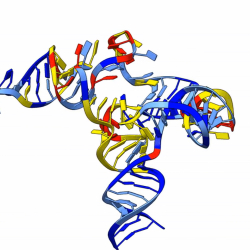College Innovator Receives 2021 Invention of the Year Award
A battery technology that opens the door to better-performing electric cars and wearable technologies received the University of Maryland’s 2021 Invention of the Year Award.
The winning invention, “Reversible Chemistry in Graphite Cathode for Safe, High Energy Batteries,” was developed by Chunsheng Wang, R.F. and F.R. Wright Distinguished Chair in the Departments of Chemistry & Biochemistry and Chemical & Biomolecular Engineering, and Chongyin Yang, former assistant research scientist in the Department of Chemical & Biomolecular Engineering. This technology has both high-energy density and efficiency and a fully aqueous design that—because it contains a “water-in-salt” electrolyte—is much safer, even as it outperforms most non-aqueous lithium batteries on the market.
The Invention of the Year award winner was announced April 21, 2021 at the Innovate Maryland event, which was part of UMD President Darryll Pines’ Inauguration Week activities.
Two other projects led by researchers in the College of Computer, Mathematical, and Natural Sciences were honored as Invention of the Year award finalists:
- “Scalable and Efficient Method of Creating Versatile Carbon Nanotubes” invented by Department of Chemistry and Biochemistry Professor YuHuang Wang, former visiting graduate student Hongbin Luo, and Peng Wang (Ph.D. ’19, chemistry)
- “Using Artificial Intelligence to Recognize Emotion” invented by Dinesh Manocha, Distinguished University Professor and Paul Chrisman Iribe Professor in the Departments of Computer Science and Electrical & Computer Engineering; Aniket Bera, assistant research professor in the University of Maryland Institute for Advanced Computer Studies; and computer science Ph.D. students Uttaran Bhattacharya, Rohan Chandra and Trisha Mittal
###
Media Relations Contact: Abby Robinson, 301-405-5845, abbyr@umd.edu
University of Maryland
College of Computer, Mathematical, and Natural Sciences
2300 Symons Hall
College Park, MD 20742
www.cmns.umd.edu
@UMDscience
About the College of Computer, Mathematical, and Natural Sciences
The College of Computer, Mathematical, and Natural Sciences at the University of Maryland educates more than 9,000 future scientific leaders in its undergraduate and graduate programs each year. The college's 10 departments and more than a dozen interdisciplinary research centers foster scientific discovery with annual sponsored research funding exceeding $200 million.







